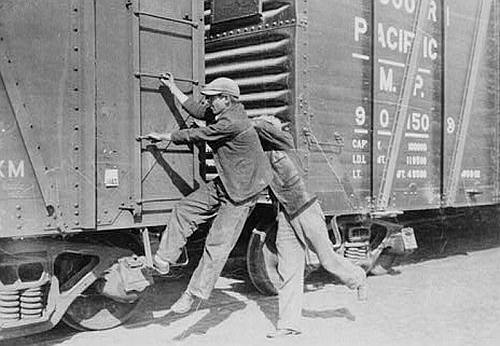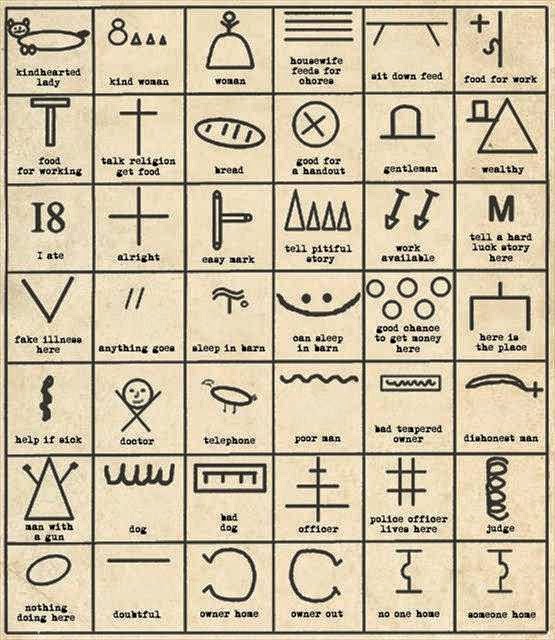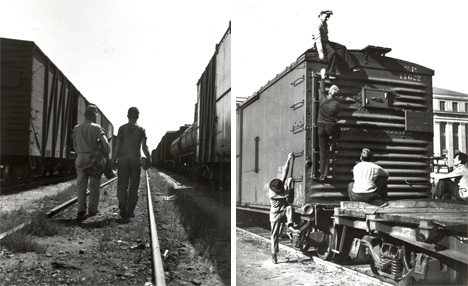During the Great Depression of the 30’s as jobs had been deemed scarce, the rise of hobo culture and community had begun. As many people would assume hobos to be homeless irresponsible maniacs, they are actually much more than that. “A hobo wanders and works, a tramp wanders and dreams and a bum neither wanders nor works,” a quote depicting the general idea of hobo culture. In other words, hobos were known as nomadic workers, catching freight trains and picking up jobs here and there. Tramps were similar but only travelled and did not aim to pick up any jobs. Finally bums, described the homeless who did not have any desire to travel or work.

Freight hopping
The train was a main resource for hobos. It allowed for them to move across the country to find work, but meant for a dangerous and difficult lifestyle. With out the comfort and support of their own family and home, there is an incredible sense of accountability which drives the hobo culture to thrive and survive. As hobos travel from place to place, they leave codes in the form of pictographs to help each other. These codes communicate information on where to find food or shelter, what danger lies ahead, what kind of people live in a certain area, etc. These pictographs appeared near rail yards, smeared with coal or chalk. The hoboglyphs were kept simple enough for other hobos to understand since many were quite illiterate. At the same time these pictographs were difficult and close to impossible to decipher by the wealthy, since living conditions and situations were meticulously specific to hobos.

Symbols used amongst hobos
As hobos were typically not welcomed to certain areas and were looked down upon, they were still tolerated because of their willingness to pick up jobs no one wanted. They also stood by a number of rules which were officiated in the community. With the challenges and dangers in traveling about, hobos kept themselves in check with these 15 rules:
1. Decide your own life; don’t let another person run or rule you.
2. When in town, always respect the local law and officials, and try to be a gentleman at all times.
3. Don’t take advantage of someone who is in a vulnerable situation, locals or other hobos.
4. Always try to find work, even if temporary, and always seek out jobs nobody wants. By doing so you not only help a business along, but ensure employment should you return to that town again.
5. When no employment is available, make your own work by using your added talents at crafts.
6. Do not allow yourself to become a stupid drunk and set a bad example for locals’ treatment of other hobos.
7. When jungling in town, respect handouts, do not wear them out, another hobo will be coming along who will need them as badly, if not worse than you.
8. Always respect nature, do not leave garbage where you are jungling.
9. If in a community jungle, always pitch in and help.
10. Try to stay clean, and boil up wherever possible.
11. When traveling, ride your train respectfully, take no personal chances, cause no problems with the operating crew or host railroad, act like an extra crew member.
12. Do not cause problems in a train yard, another hobo will be coming along who will need passage through that yard.
13. Do not allow other hobos to molest children; expose all molesters to authorities…they are the worst garbage to infest any society.
14. Help all runaway children, and try to induce them to return home.
15. Help your fellow hobos whenever and wherever needed, you may need their help someday.
